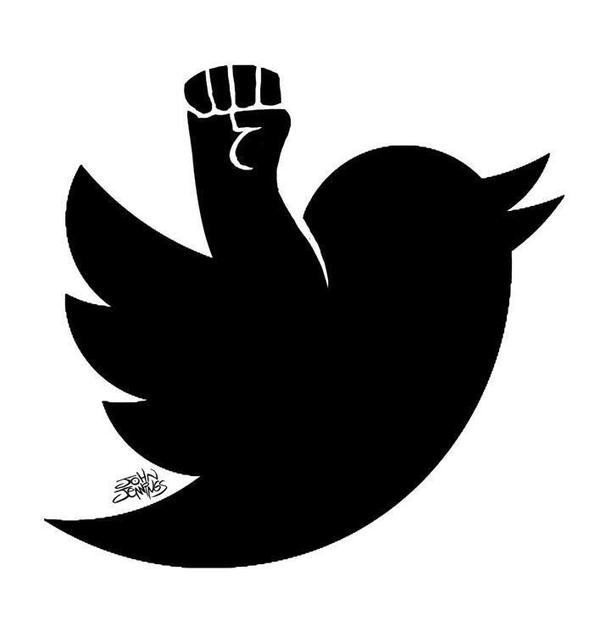Participatory Politics in an Age of Crisis: Mel Stanfill and Samantha Close (Part II)
/Mel
Your opening post definitely drives home for me how much context matters. It would never occur to me to talk about teaching in the context of participatory politics these days because of the particular configuration of my current job. But I definitely used to ask students to make digital resources they’d then release into the world to get the information about whatever their research topic was--a Tumblr with resources for LGBTQ+ youth, a YouTube video on body image, Wikipedia entries addressing LGBTQ+ people in rural areas--out into the public. But I can’t do anything like that anymore, in large part because I simply have too many students.
The impulse toward community-based, participatory types of projects is a good one, but (and maybe this is end-of-semester cynicism), I wonder about the trade-offs. My university is opening a new campus downtown next year, and one of the cheer-leading squad talking points is about engaging with the community. On one hand, the university will inevitably gentrify the nearby historically Black neighborhood out of existence in a very short time, so trying to give something back is the least that we can do, and it will absolutely benefit the students to have the chance to actually apply their web or game design knowledge for a real client. On the other hand, there’s the White Savior factor, plus I know that my students already work long hours at their (sometimes multiple) paid jobs just to be in school--asking them to do more unpaid labor to clean up the university’s mess feels very squicky to me.
So really, what this emphasizes to me is that participatory politics requires resources. It doesn’t require as many resources as the massive campaign donations required to make a difference in traditional politics, of course. But it does need time at the bare minimum and often technological skills and good quality internet on top of that. How can we think about its (very real) potentials while keeping in sight those (very real) limitations?
Sam
Context and the location of your perspective are both absolutely key here, and that’s something your opening statement brought home to me as well in emphasizing that the same text can be both simultaneously racist and anti-racist. The same teaching practice, in two different institutional contexts, could bring students, university, and community into closer partnership--or make a mockery of such partnership through ignoring the impact of privilege.
To me, the way to work with the real potential of participatory politics while not forgiving or forgetting its limitations is to confront these questions head on and to live in their contradictions. All of our faves are problematic. And even if they weren’t, the way we squee over them might well be. What teaching can do as a practice is to leverage that existing love to take our faves seriously enough to be critical of them, a kind of tough love for media. Historically, this has been a strength of fandom’s engagement with texts but as people have fetishized, or over-emphasized and blindly relied on, simply being fannish as a way to be “progressive,” that strength has fallen by the wayside. This is as true of uncritical affirmations of transformative fandom, the fic-writing, art-making creative folks, as it is of the critiques that transformative fans often throw at affirmational fans. This has been particularly and painfully clear in recent Star Wars fandom, where (mostly white) fans have harassed fans of color, like Zina Hutton or Rukmini Pande, who critique that fandom’s racist neglect of Finn and Poe.
The problem that many of the necessary resources for participatory politics, particularly those based on capital like technological infrastructure, skill, and access, come from existing centers of privilege and power is very real. It’s also not new. The same issue can be seen looking back to countercultural US activism in the sixties, for instance, where most communes were supported by family money or friends and relations with “straight” jobs. Today, the awesome that is Black Twitter exists on, well, Twitter, with all of its associated problems of harassment and amplification of white nationalism. Once we acknowledge that, the only way I see forward is to direct our own and others’ participation to push our systems, our institutions, our communities, our fandoms into better versions of themselves.
Mel
In the spirit of “all of our faves are problematic,” one thing I’m thinking about lately is “pleasure isn’t innocent” or “desire isn’t innocent.” Sure, maybe Finn and Poe don’t do it for you (or, the fight happening in my side of the internet lately, maybe trans women don’t do it for you), but that isn’t just a neutral fact that exists out in the world. It comes from somewhere. It is the product of a particular configuration of what we’ve learned to enjoy--or not. That doesn’t mean anyone is forced to enjoy the thing. It doesn’t speak to whether you’re “a bad person” for not liking the thing. But it does need to be understood as arising from and enmeshed in the systems of power conditioning how we think about the thing.
And that works both ways. It’s not that you can’t like CW DC Comics shows, say, just because they did a Nazi fanfic arc and some of their actors are bigots. It’s not like if you do like these shows you’re “a bad person”--whatever that might mean. But it is nevertheless true that supporting this media constellation isn’t just a neutral thing that exists in the world. It contributes to upholding these broader systems of power.
Mel
In the spirit of “all of our faves are problematic,” one thing I’m thinking about lately is “pleasure isn’t innocent” or “desire isn’t innocent.” Sure, maybe Finn and Poe don’t do it for you (or, the fight happening in my side of the internet lately, maybe trans women don’t do it for you), but that isn’t just a neutral fact that exists out in the world. It comes from somewhere. It is the product of a particular configuration of what we’ve learned to enjoy--or not. That doesn’t mean anyone is forced to enjoy the thing. It doesn’t speak to whether you’re “a bad person” for not liking the thing. But it does need to be understood as arising from and enmeshed in the systems of power conditioning how we think about the thing.
And that works both ways. It’s not that you can’t like CW DC Comics shows, say, just because they did a Nazi fanfic arc and some of their actors are bigots. It’s not like if you do like these shows you’re “a bad person”--whatever that might mean. But it is nevertheless true that supporting this media constellation isn’t just a neutral thing that exists in the world. It contributes to upholding these broader systems of power.
We can’t exempt ourselves from those systems in our fandom practices any more than we can opt out of white supremacy itself. You can sit with that reality, or you can work to change it, but it’s the place we’re standing either way. What we can do, as you point out, is push institutions and communities to be better.
__________
Mel Stanfill is an Assistant Professor with a joint appointment in the Texts & Technology Program and the Department of Games and Interactive Media at the University of Central Florida. Stanfill’s book, Exploiting Fandom: How the Media Industry Seeks to Manipulate Fans, is available from the University of Iowa Press.
Samantha Close is an Assistant Professor in Communication at DePaul University. Her documentary, I Am Handmade: Crafting in the Age of Computers, and her peer-reviewed research articles on topics such as graffiti knitting and fan masculinity are available online. You can find her on Twitter @ButNoCigar





